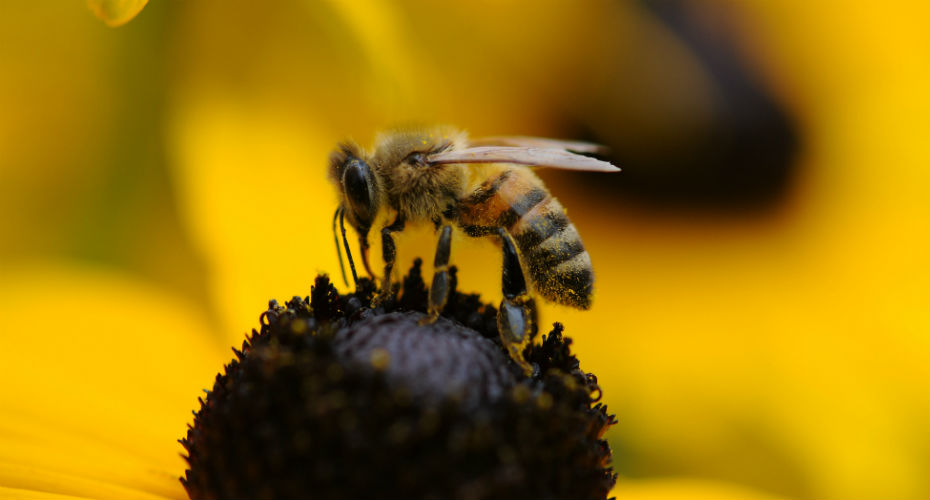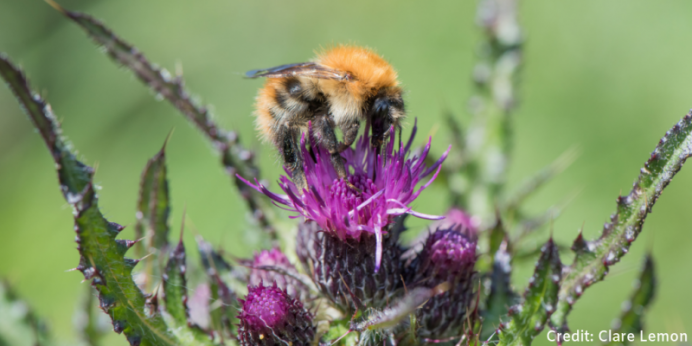
Find more information on our current suite of bee colony and foraging bee models.
This project received an Innovation Internship Fellowship and an Innovation grant from the Natural Environment Research Council.
An integrated model for predicting bumblebee population success and pollination services in agro-ecosystems
BEE-STEWARD: A tool for supporting resilient pollinator populations
BEE-STEWARD: A tool for supporting resilient pollinator populations
Pollination is an ecosystem service which underpins agricultural production. There are serious concerns that populations of key pollinators, such as bees and other insects, are declining, which could lead to profound impacts on crop yields and on natural plant communities.
This project uses a combination of experiments and modelling to predict bumblebee nest density, distribution and survival in agricultural landscapes. The model describes bumblebee colony dynamics and foraging behaviour, taking into account as many negative environmental factors as possible, for example, levels of predation and parasitism in the nests (the extent to which the bees are victim to predators from their own or other species).
The model – which can also help researchers predict the distribution of pollination services provided by bumblebees – is validated with detailed survey and experimental data collected in the field. The research’s aim is to provide a powerful tool for shaping recommendations so that land managers and policy makers can ensure sustainable pollination is able to thrive in tandem with successful arable farming.
The project is a collaboration between University of Exeter, University of Sussex and Rothamsted Research.
Professor Juliet Osborne and her research group have recently won the prestigious BBSRC Innovator of the Year 2017 award for Social Impact due to the real world benefits of their computer models of bee colony dynamics. They have teamed up with partners including Natural England, the NFU (National Farmers Union), South Devon AONB (Area of Outstanding Natural Beauty) and Cornwall AONB who are professionals in farming and environmentally sensitive land management. They are working together to transform Juliet’s latest computer models of bee colony dynamics into computer software that can help decision making that benefit farmers and pollinators.

BEE-STEWARD software can be used to visualise how pollinator-friendly land management options might affect bee survival in any chosen landscape, thus aiding effective decision-making and resource allocation, and increasing the likelihood of land being managed to boost pollinators.
Professor Juliet Osborne
Dr. Grace Twiston-Davies has been working closely with Cornwall AONB on their joint campaign “Farms for AONBees” specifically targeting Cornwall’s finest landscapes to test the bee models with farmers on the ground, helping them to make pollinator friendly, business savvy management decisions.
Colette Beckham, Cornwall AONB Partnership Manager says: “Our pollinators are in grave danger. It is critical that we better understand how management of our farmland affects these vital insects without which our agricultural economy could not survive. This research will help farmers make more informed choices to help bees thrive in our landscapes”.

